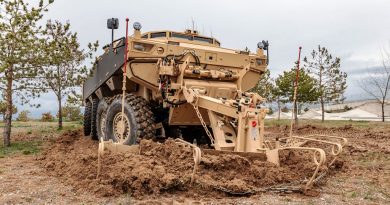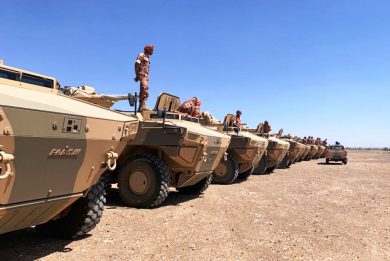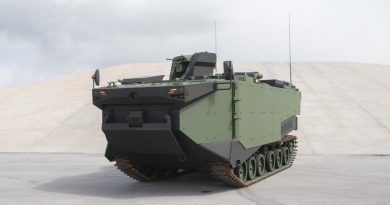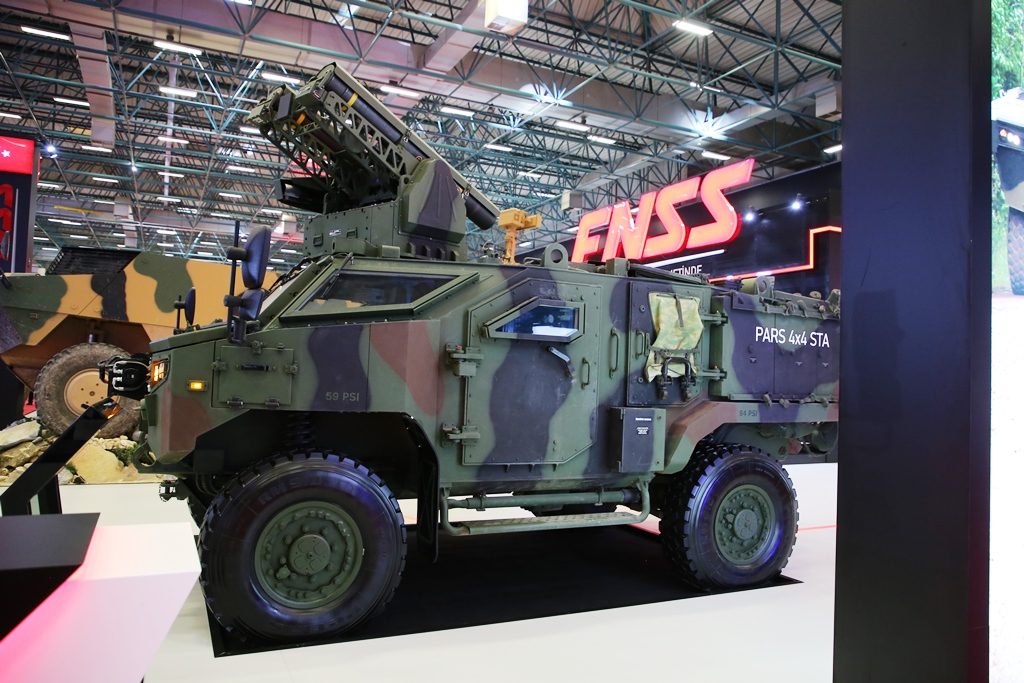
FNSS aims at expanding its export base, company CEO says
Interview of Nail Kurt, FNSS CEO, by Paolo Valpolini
“My feeling is that although symmetric wars against peer adversaries are becoming again one of the focuses, asymmetric scenarios will however maintain and even increase their importance. Those that are often defined as proxy wars will not definitely be symmetric, and this will probably lead to require more flexible systems, as structured armies will not give up the symmetric side, which is needed also for deterrence purposes, but will also need their platforms and systems to answer asymmetric needs. Moreover, the western world, as well as some nations in the eastern world, are more and more keen on soldiers’ safety, and therefore they will tend to get safer platforms against asymmetric threats,” Mr. Nail Kurt tells EDR On-Line. The FNSS CEO sees the hybrid scenario dominating the future, requiring armies to acquire conventional and asymmetric types of equipment- “We already see this on two of our products,” he says, “the 6×6 PARS IV Special Operations Vehicle, which is meant to fight in asymmetric scenarios, as well as in our unmanned ground vehicle, and both were developed according to customers’ requirements. Customers are reacting fast, and our national customer, the Turkish Land Forces, has the opportunity to operate in a number of hot zones under continuous threats, and it gets first-hand lessons learned.” And those shape its requirements fast, while other armies do not have the same opportunity.

Leaving the general situation, EDR On-Line asked the FNSS CEO about the company current situation, starting from the split in the turnover between national and export incomes. “As in 2021 the Malaysian and Omani contracts came to an end, we are now heavily relying on our national customers. We expect new orders from those valuable export customers, but the pandemic situation impacted those perspectives and there is a one- or two-year delays in all new programmes. Considering new markets we signed two good contracts in the Philippines, not very big but I consider them a promising start.
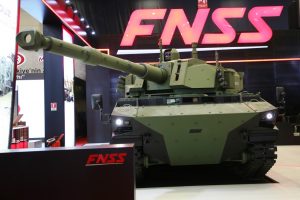
The Indonesian Medium Tank programme is ongoing with small batches and short periods of contract time, and we know there is a huge requirement for such weapon system which remains a priority, but there is also a requirement for wheeled vehicles as well as for amphibious vehicles, for which we would propose our Zaha, the latter programme having probably a higher priority than the wheeled vehicle. Back to the medium tank, we are delivering 18 vehicles, 10 as complete tanks produced in Turkey and eight as materiel shipping to PT Pindad which will produce them, further batches being all produced in Indonesia.” Looking at other geographical areas Mr. Kurt underlines how much political relationship between countries influence the market. “We are obviously very active in the Middle- and Far-East and when the pandemic will be over, we will even increase our efforts. As for new markets we are considering South America, where we are looking at some opportunities very seriously. Caucasian republics, such as Azerbaijan and Turkmenistan i.e., have always been under our radar and this will continue. There are some critical things we need to do there as they want long-term commitment but for the time being without long-term programmes, and for us such commitment requires long-term requirements, so we have that sort of dilemma, but we want to be there, as several countries are interested in FNSS products.”
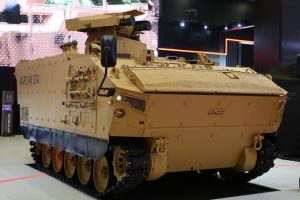
Coming to figure, “my estimate is that if not this year next year we will be at 90% domestic and 10% export,” Nail Kurt states, “while until three-four years ago it was the opposite. This is good because our national customer base is expanding and the more products, we develop the more additional contracts are signed. An example is the one signed during IDEF for an undisclosed number of wheeled and tracked antitank vehicles. The greater the number of types of systems in service with Turkish Land Forces, the more attention they get from other countries, and it is the best business card for export, although we won significant export contracts for systems not in service with TLFs.” FNSS however aims at rebalancing the domestic-export figures. “My estimate is that it will not take more than three-four years before export sales will recover, hopefully getting us back to a stable 50/50 split, which would be a very healthy situation for our company.”
The political situation in the world led to some embargoes in the defence field. “The embargo issue definitely affected us,” the FNSS CEO tells EDR On-Line, “but on the other hand it helped us in facilitating our localisation effort. A very good example is that of steel armour that came to fruition in a very short period; Turkey invested in steel armour production purchasing a foreign company and developing facilities in Turkey, technology is here, and the raw materiel is provided by Turkish industries. We as vehicles manufacturers are heavily involved in the qualification of those armour steels from the manufacturing standpoint, giving advice on weldability, bending and machining properties. Another good example is in the field of automatic cannons, two companies currently working on the development of license-free 25 mm weapons, the aim being to have them qualified in two-years’ time.”
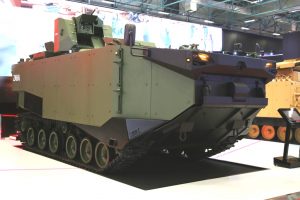
How much all-Turkish solutions might generate problems when dealing with transfer of technology or local contents requirements for export contracts. “I don’t think we will have any difficulty because the localisation effort is required for Turkish local programmes, and we respect other governments offset requirements, and when we win export contracts if those include local content or local investment issues, we are ready to do it as long as ToT is allowed by the Turkish government, and so far, we have seen no problems. We are anyway checking all that even before starting our marketing efforts, as for some of the products the intellectual property belongs to SSB, the Presidency of Defence Industries.”
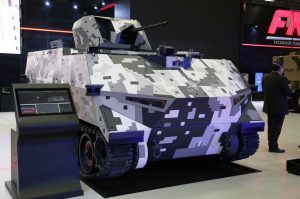
To stay ahead of competition technology investments are needed. “We are investing on electronic infrastructures, on the adaptability of state-of-the-art technology to the platforms we are producing, of course we are closely looking at connectivity, which in my opinion includes issues such as cybersecurity, as nowadays any platform must be part of a wide network. One good example is the PARS IV 6×6 SOV we unveiled here at IDEF. Connectivity is key in transferring all the data collected by our platforms, as these are recorded and sent to other players, and the amount of data is increasing dramatically compared to the recent past.
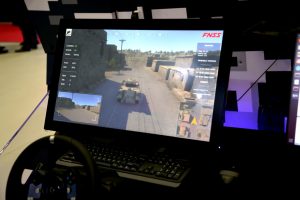
Remote control might also be considered part of the electronic investment. We have a base group working on those topics, we might expand it a bit more, but its role is mainly to manage what we define qualified business partners, that bring us those technologies that it does not make sense to develop in house. One more key area is of course protection; it is a field in which we always invested, and although this is bringing to a constant weight increase that should soon or late come to a limit, it is something that remains key for armoured platforms.”
FNSS’ portfolio contains tracked as well as wheeled vehicles, the discussion between the two solutions being a never-ending story. “I think that in a hybrid environment also the answer might be ‘hybrid’, and I would say that we probably need both, of course depending on threat assessment and ground considerations. The more the fight will take place away from urban areas and on cross-country terrain, the more we will need tracked platforms, the more it takes place in towns and in areas with good infrastructures, the more the balance will lean on the wheel side.”
Back to EDR coverage of IDEF 2021 menu.
Photos Paolo Valpolini

